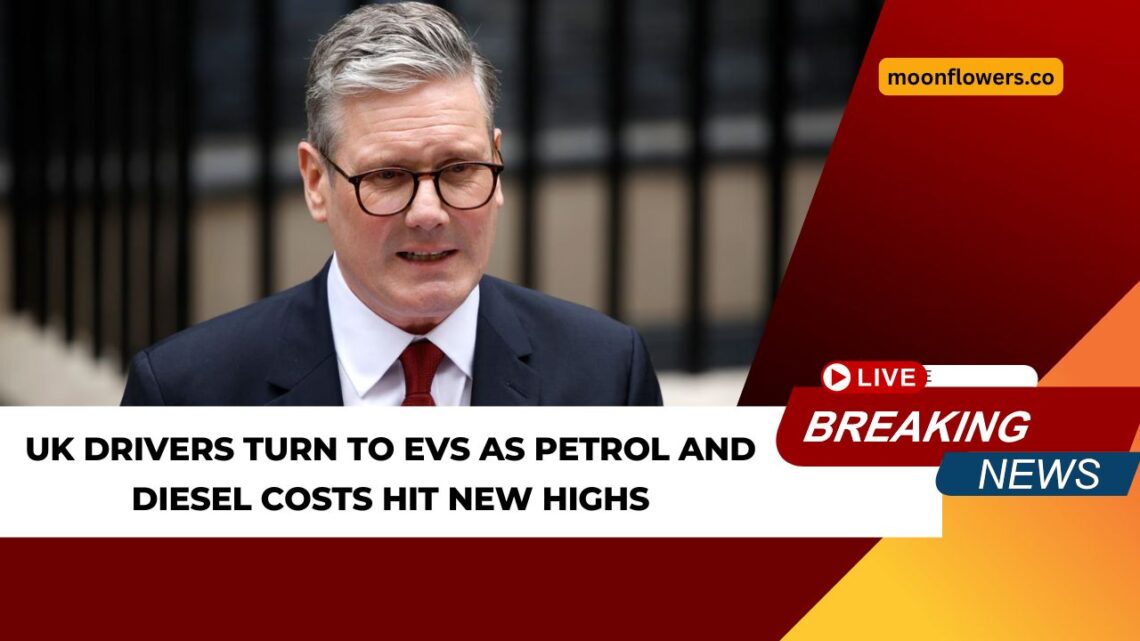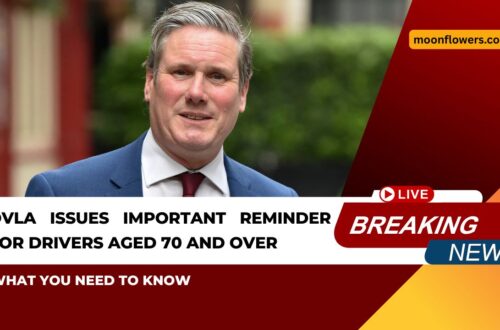As fuel prices in the UK climb, millions of drivers are seriously considering ditching their petrol and diesel cars in favour of electric vehicles (EVs).
A new survey in September 2025 revealed that 56% of Britons would be influenced to switch to an EV if petrol and diesel costs continue to rise, highlighting the growing financial strain on households.
Fuel Prices in September 2025
The latest data shows:
| Fuel Type | Average UK Price (per litre) | Northern Ireland Average |
|---|---|---|
| Petrol (Unleaded) | 134.25p | 127.7p |
| Diesel | 141.9p | 133.6p |
While RAC Fuel Watch does not anticipate immediate changes, motorists remain concerned as prices have been steadily rising.
The Office for National Statistics (ONS) confirmed that the average petrol price increased by 0.3p per litre between July and August 2025, reaching 134.2p per litre in August 2025.
Generational Divide in Switching to EVs
Survey data shows that age plays a major role in how drivers respond to fuel price hikes:
- 76% of drivers aged 25–34 say rising costs make them more likely to switch to an EV.
- Only 34.5% of drivers aged 55+ feel the same, suggesting older motorists are more hesitant.
This generational divide suggests that younger drivers are more open to adopting EVs, while older groups may be deterred by upfront costs, lack of charging infrastructure, or familiarity with traditional cars.
Government and Market Measures
To combat high fuel costs, both the government and private companies are rolling out solutions:
- Fuel Finder Scheme: Expected to launch by end of 2025, requiring all UK petrol stations to report price changes within 30 minutes. This tool could help drivers save 1p to 6p per litre.
- Consumer Council Fuel Price Checker (Northern Ireland): Already saving drivers money by showing the cheapest and most expensive pump prices.
- Competition and Markets Authority Oversight: Ensuring fair competition and preventing “rip-off” fuel pricing at pumps.
According to the Department for Energy Security and Net Zero (DESNZ), Fuel Finder is “on track” to be introduced before year-end, making pricing more transparent for drivers across the UK.
Why Drivers Are Considering EVs
Motoring experts stress that soaring petrol and diesel prices are not just a temporary burden. Combined with ongoing 3.8% inflation, they are prompting many to rethink long-term transport options.
EVs are becoming increasingly attractive due to:
- Lower running costs compared to petrol and diesel cars.
- Government incentives and grants supporting greener choices.
- Expanding charging infrastructure across cities and motorways.
- Concerns about fuel price volatility and energy security.
Dorry Potter, a motoring expert, highlighted that the financial strain is “clearly prompting more drivers, particularly younger ones, to consider a move to electric vehicles.”
Challenges of the Transition
While enthusiasm for EVs is rising, there remain hurdles:
- High upfront costs of electric vehicles compared to petrol/diesel.
- Charging availability in rural areas remains inconsistent.
- Battery replacement costs still concern many older drivers.
Despite these challenges, the data shows a clear trend: millions are at least considering EV adoption in response to mounting financial pressures.
With petrol averaging 134.25p and diesel nearly 142p per litre in September 2025, the financial strain on motorists is undeniable. Surveys show that millions are now seriously considering switching to electric vehicles, with younger generations leading the change.
As government measures like the Fuel Finder scheme aim to ensure fairer fuel prices, the momentum toward EVs continues to build, marking a potential turning point in the UK’s motoring landscape.
FAQs
What percentage of UK drivers are considering switching to EVs due to fuel prices?
Around 56% of Britons say rising fuel costs would influence them to switch.
When will the new Fuel Finder scheme launch?
The Fuel Finder scheme is expected to be rolled out by the end of 2025.
How much could drivers save using Fuel Finder?
Experts estimate potential savings of 1p to 6p per litre, depending on location and fuel type.









